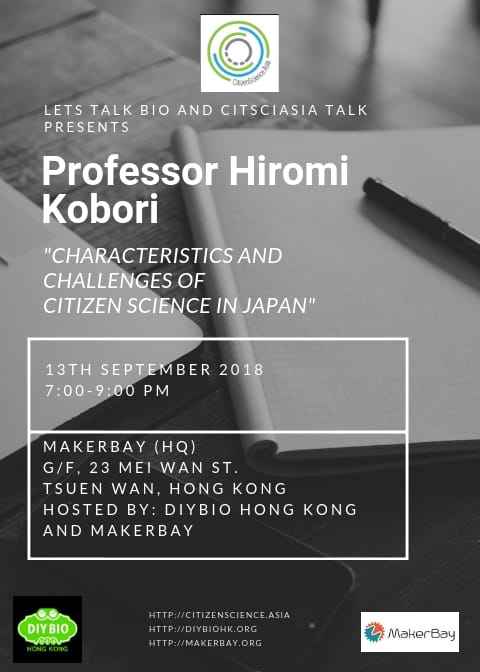
Open Data Versus The Dengue
With at least 23 locally transmitted cases of Dengue in Hong Kong this year – this is the cases reported since records began in 1994. This summer has also seen a sharp spike in the mosquito carried West Nile virus infections in Europe, following soaring temperatures. At least 400 cases of the disease have been recorded, with 22 deaths, according to the European Centre for Disease Prevention and Control (ECDC). The increase in these mosquito carried disease is thought to be linked to global warming, with an extremely hot and wet summer in Hong Kong, and record heatwaves in Europe.
The rapid and deadly spread of these diseases requires an equally rapid response, and intelligent data driven approaches in tackling them could give us a key advantage in this fight. Singapore provides excellent KML mosquito breeding site data, but unfortunately in Hong Kong the authorities limited Oviposition Trap detection system only covers <2% of our territory, and other than very archaic PDF forms. Unable to understand the benefits of open data that Singapore is seeing, the FEHD will not share the supporting data (see our attempts at making FOI requests), with their representative stating on the Pearl Report that “The more information, the more unnecessary misunderstandings”.
School Children 1: Professionals 0
We’ve previously written about Hong Kong’s participation in the “Global Mosquito Alert” alliance of citizen-science organisations bringing together thousands of volunteers from around the world to track and control mosquito borne viruses. These efforts also lead to kick-off of a network of its own: CitizenScience.Asia – bringing together Citizen Science projects and practitioners in Hong Kong and across Asia. Coming out of an ODHK-co-promoted “Zika-hackathon” a Cantonese version of the Mosquito Alert app was developed and promoted. Working with schools, the Chinese Foundation Secondary School did an amazing job testing the app with their students, presenting their efforts at the HK SciFest 2017 at the Hong Kong Science Museum. These efforts have now paid off, with the Hong Kong (mostly school children collected) datapoints being ingested alongside another 4,000 observations into the GBIF—the Global Biodiversity Information Facility. This is an international network and research infrastructure funded by the world’s governments, and is the main home for open access to data about all types of life on Earth. Zooming into East Asia you can see a small but prominent cluster of observations in Hong Kong. Proof that even school children can contribute to the global sum of research knowledge.
This is even more impressive as the Hong Kong research community is particularly conservative, with very few researchers depositing their data in global databases such as GBIF. Despite being a global norm and mandated by a growing number of research funders in Europe, North America and Australasia, and with even the Ministry of Science Technology in Mainland China announcing new policies ‘promoting open access to, and sharing of, science data’. Hong Kong in contrast has no policies, and the chair of the main research funded has publicly stated that he believes sharing data would reduce Hong Kong’s competitiveness. It is heartening that at least our school children are putting their elders to shame in contributing to the global sum of knowledge, and Hong Kong’s Citizen Scientists will not make the same mistakes the supposed “Professional” scientists will.
This is one of many examples of the potential of Citizen Science to capture the interest of the Hong Kong public, and be a leader and hub for these activities in the region. Another being in the recent City Nature Challenge, where utilizing the iNaturalist App Hong Kong ranked 8th in “most observations” (20,268), 4th in “most species” (2,934), and 7th in “most observers” (755) among 68 cities in the world. As a first time participant Hong Kong really put itself on the map, contributing the most new species: 57 out of 124 global new species (46.0%) in the iNaturalist database. The consequences of this are starting to be felt, with the Tai Tam Tuk Foundation organised Hong Kong Inter School City Nature Challenge kicking off this November, and visitors coming to see how we did so well.
Next week Professor Hiromi Kobori from Tokyo City University is coming to Hong Kong to fact find with the Tai Tam Tuk Foundation on City Nature Challenge and Citizen Science opportunities across the region. Prof Kobori has been a citizen science advocate in Japan for a long time, and is also the main organizer of the Tokyo City Nature Challenge. Our colleagues at CitizenScience.Asia and DIYBIO Hong Kong have organized a meetup and talk from Prof Kibori on the “Characteristics and Challenges of Citizen Science in Japan”. On Thursday 13th September head out the all new MakerBay in Tsuen Wan from 7pm, and there are plans to live-stream and film the talk, so sign up on Facebook and watch out on social media for links for that.
- Time: September 13th, 19:00 – 21:00
- Location: MakerBay Tseun Wan
- Facebook event: Link
- Price: Free, BYOB


